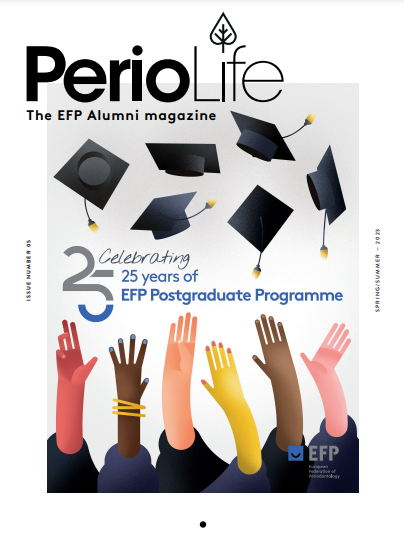Education & Career, Article
Moshe Goldstein looks back on nine years of growth in postgraduate education
04 June 2023
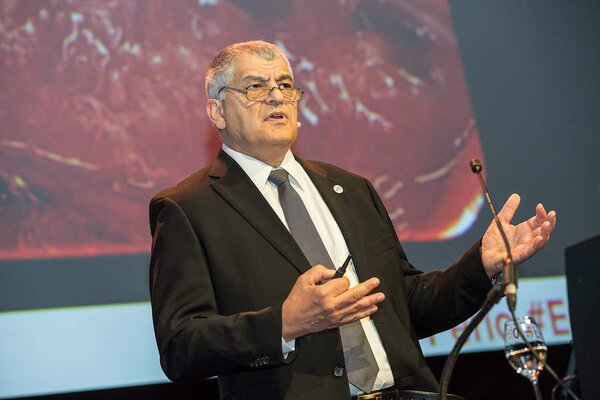
In April 2023, Moshe Goldstein stood down as chair of the EFP’s postgraduate-education committee, a post he had held since 2014. He talks to EFP Alumni chair Ed Madeley about the challenges and achievements over these last nine years, during which the number of EFP-accredited postgraduate programmes has more than doubled.
ED MADELEY: You held the role of chair of the EFP postgraduate education committee for nine years. What initially interested you about taking on this position rather than other roles within the EFP?
MOSHE GOLDSTEIN: There were several reasons. Postgraduate education is something I have dedicated a major part of my career to, and I thought I could contribute to the postgraduate-education committee. Also, I had the conviction that the EFP could be a leader in international periodontal education.
EM:When you became chair, there were 11 programmes in 10 countries. There are now 23 in 15, including two outside of Europe. What have been the factors involved in this expansion, and what challenges have you faced in bringing in so many new universities?
MG: In 2014 we had 11 accredited programmes. One programme (Tel Aviv) lost its accredited status a few years ago. Since 2014, 12 more programmes have been accredited. The increase in the number of accredited programmes has happened following two things. First, the continuous mentioning of the possibility of having a programme accredited by the EFP, with all the positive clinical benefits and prestige involved in this. This was one of the things I did at every EFP meeting, whenever participating in congresses, meeting programme directors, and so on.
Second, whenever there has been a first accredited programme in a specific country, the directors of otherprogrammes in that country have wanted the same achievement. The expansion did not just “happen” – it was a proactive policy of the postgraduate-education committee.
EM: Do you see the number of EFP-accredited programmes continuing to grow over the next few years? And where do you expect this growth to take place? Frankfurt University is set to become the first German programme to gain accreditation, so will there be more in Germany? And what about other European countries with no EFP programme at present, such as Austria or Denmark?
MG: More programmes should and most probably will apply for EFP accreditation. We started a process of survey and mentoring possibilities for programmes that would like to meet the EFP standards of accreditation. I believe that under Professor Donos’s leadership this will happen. The “target” programmes are those from all EFP member countries.
The mentoring idea was something we thought about for programmes that have not applied for accreditation, but which might want to. It is a way to provide help to directors that want to prepare their programme for accreditation. It was an idea I had about three years ago when observing that in some countries there is no attempt to accredit programmes although there are postgraduate training centres there. I have to confess that several directors of programmes in countries with EFP member societies contacted me and asked questions, but none of them has so far asked for the proposed mentoring. I hope it will happen.
EM:When considering cases like Hong Kong, what effect do you feel the expansion of the accreditation of programmes outside of countries with EFP members will have on the EFP as a whole in the future? Is there a goal to extend accreditation into more countries that do not yet have an EFP member society? And beyond Europe, which areas offer most scope?
MG: A major strategic goal of the EFP is to be the most prominent factor in international periodontology. Postgraduate education is defi nitely one of the ways to achieve this goal, in addition to the EFP’s Perio Workshops and EuroPerio congresses. I know that some programmes from Latin America have looked at the EFP’s Quality Standards for Postgraduate Education document to use in their universities.
I strongly believe that our education system can be a model for postgraduate training programmes anywhere.
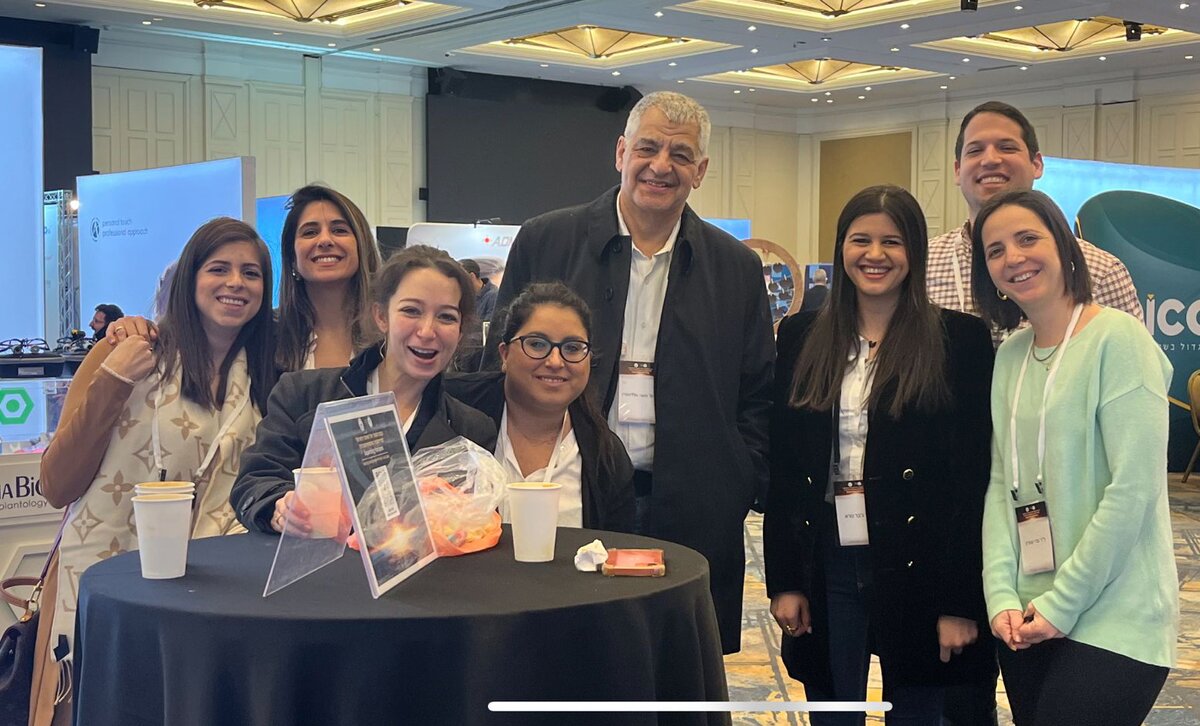
EM: I fondly remember as a postgrad the experience of my EFP postgraduate symposium (even though I had the daunting taxk of presenting my research). Having attended multiple symposia, what are your thoughts on the benefits of these events of graduating periodontists?
MG: The sharing of knowledge and clinical expertise at the symposia has a catalytic effect towards improving each programme. The level of the clinical cases as well as the research projects is improving from one symposium to the next. Another prominent achievement of these symposia is the personal encounters and friendship of students from different countries, a key for possible future scientific, academic, and clinical co-operation after graduation.
EM: How have the symposia evolved over these years? How easy has it been to accommodate so many more programmes?
MG: Easy? Not at all. But definitely not a burden. Always a pleasure. The feeling of achievement grew from one symposium to the other.
EM: What has been the most enjoyable aspect of your nine-year role as chair of the postgraduate-education committee and what will you miss most about your time in the role?
MG: Most enjoyable: the contact with the programme directors and other faculty members in the programmes and seeing how the students grow up professionally. I’ll miss the professional connections with the programmes, but I hope to continue to meet and have contact with the many friends I made in these programmes.
EM: Is there anything you would have liked more time to achieve?
MG: I tried to do the best I could during my term. It is a good thing to change the team and have new leadership in the education committee.
EM: What advice would you have for your successor as he takes on the role?
MG: Professor Nikos Donos knows perfectly how to manage the education committee and I believe he has a clear strategic plan. We worked together in the postgraduate-education committee for many years. He does not need any additional advice.
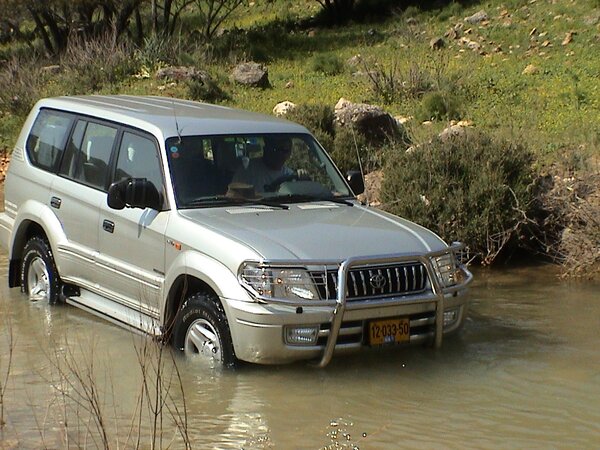
EM: What interests you outside of dentistry and what do you plan to do with your free time?
MG: The truth is that I do not have free time. I continue to direct the postgraduate programme in Jerusalem, to manage an active private practice, and to travel and speak or give courses internationally. I hope to find a way to slow down in one or two years. I still have my hobby (off-road driving) and have a 20-year-old Land Cruiser which is a very capable and sturdy vehicle, which has been upgraded to handle demanding terrain. I do off -road trips - not sports - to just enjoy nature and get to places that are more difficult to access. And there are many things that I intend o do when I “grow up”: travel more to remote places, get involved in wildlife preservation programmes, study history, and more.
But don’t expect to see me on long cruises while sunbathing on the deck or spending time in coffee houses waiting for my siesta!
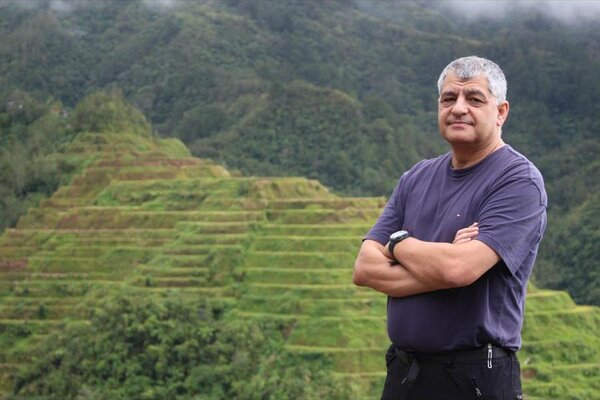
Biography
Professor Moshe Goldstein graduated from the Faculty of Dental Medicine of the Hebrew University in Jerusalem, Israel in 1986. He did his postgraduate training in periodontics at the Hadassah-Hebrew University Medical Center in Jerusalem and received his specialist diploma in 1990. Having served as the president of the Israeli Society of Periodontology in 1997 and 1998, Prof. Goldstein was a member of the executive committee of the European Federation of Periodontology from 2009 to 2014, including a year as federation president (2012-13). From 2014 to 2023 he served as chairman of the postgraduate education committee.
Prof. Goldstein is the director of postgraduate periodontology at the Faculty of Dental Medicine of the Hadassah-Hebrew University Medical Center, and maintains a private practice limited to periodontology and implantology in Tel Aviv. He has been involved in research, development, and clinical applications of periodontal surgical techniques, bone regenerative materials, and dental-implant systems. He has published widely and lectured at more than 90 national and international professional events.
This article was originally published in Perio Life: The EFP Alumni Magazine, issue 5, in June 2023.
The full issue can be found here.

